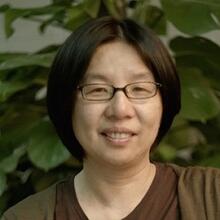“Veridical Data Science for Biomedical Discovery: Detecting epistatic interactions with epiTree,” Bin Yu, UC Berkeley

QUANTITATIVE RESEARCH METHODS WORKSHOP
Abstract: “A.I. is like nuclear energy – both promising and dangerous” – Bill Gates, 2019. Data Science is a pillar of A.I. and has driven most of recent cutting-edge discoveries in biomedical research. In practice, Data Science has a life cycle (DSLC) that includes problem formulation, data collection, data cleaning, modeling, result interpretation and the drawing of conclusions. Human judgement calls :wq:ware ubiquitous at every step of this process, e.g., in choosing data cleaning methods, predictive algorithms and data perturbations. Such judgment calls are often responsible for the “dangers” of A.I. To maximally mitigate these dangers, we developed a framework based on three core principles: Predictability, Computability and Stability (PCS). Through a workflow and documentation (in R Markdown or Jupyter Notebook) that allows one to manage the whole DSLC, the PCS framework unifies, streamlines and expands on the best practices of machine learning and statistics – bringing us a step forward towards veridical Data Science.
Furthermore, we will illustrate the PCS framework for Stable Discovery of Interpretable Subgroups via Calibration (StaDISC). We designed staDISC in the context of our re-analysis of the 1999-2000 VIGOR randomized clinical trial. StaDISC discovers three clinically interpretable subgroups each for the GI outcome (totaling 29.4% of the study size) and the CVT outcome (totaling 11.0%). Complementary analyses of the found subgroups using the 2001-2004 APPROVe study, a separate independently conducted RCT with 2587 patients, provides further supporting evidence for the promise of StaDISC.
Bin Yu is Chancellor’s Distinguished Professor and Class of 1936 Second Chair in the departments of Statistics and of Electrical Engineering and Computer Science (EECS) at UC Berkeley. She leads the Yu Group which consists of 15-20 students and postdocs from Statistics and EECS. She was formally trained as a statistician, but her research extends beyond the realm of statistics. Together with her group, her work has leveraged new computational developments to solve important scientific problems by combining novel statistical machine learning approaches with the domain expertise of her many collaborators in neuroscience, genomics and precisio medicine. She and her team develop relevant theory to understand random forests and deep learning for insight into and guidance for practice.
Professor Yu is a member of the U.S. National Academy of Sciences and of the American Academy of Arts and Sciences. She is Past President of the Institute of Mathematical Statistics (IMS), Guggenheim Fellow, Tukey Memorial Lecturer of the Bernoulli Society, Rietz Lecturer of IMS, and a COPSS E. L. Scott prize winner. She is serving on the editorial board of Proceedings of National Academy of Sciences (PNAS) and the scientific advisory committee of the UK Turing Institute for Data Science and AI.
This virtual workshop is open to the Yale community. To receive Zoom information, you must subscribe to the Quantitative Research Methods Workshop at this link: https://csap.yale.edu/quantitative-research-methods-workshop.
The series is sponsored by the ISPS Center for the Study of American Politics and The Whitney and Betty MacMillan Center for International and Area Studies at Yale with support from the Edward J. and Dorothy Clarke Kempf Fund.